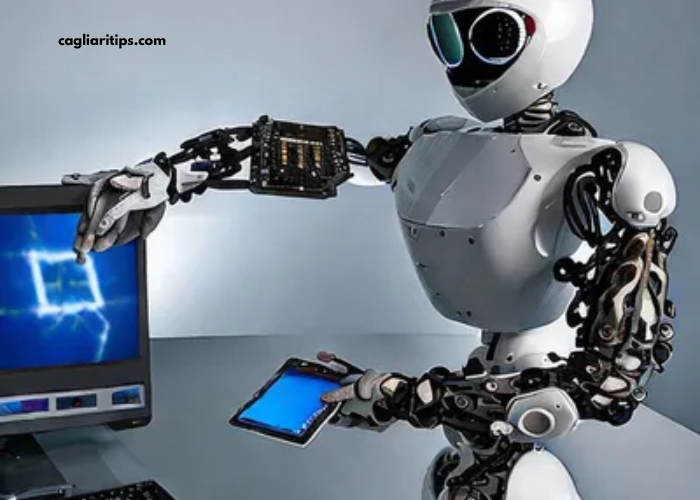Future of Technology – Business & Beyond 2025
The world of technology is evolving faster than ever, influencing not just the way we communicate and live, but also transforming the very foundation of how businesses operate. As we progress into 2025 and beyond, emerging technologies like artificial intelligence (AI), blockchain, the Internet of Things (IoT), and quantum computing are setting the stage for a futuristic ecosystem that goes beyond traditional boundaries. In this article, we explore the future of technology, its impact on business, and the broader implications across industries and society.
The Technological Landscape in 2025
Artificial Intelligence and Machine Learning at the Core
AI is no longer a futuristic concept—it’s a foundational element of modern enterprise. By 2025, AI and machine learning will be deeply integrated into every layer of business operations, from customer support and data analysis to predictive modeling and decision-making.
-
Customer Experience Enhancement: AI chatbots and virtual assistants offer personalized support 24/7.
-
Data-Driven Strategies: Machine learning algorithms provide real-time insights from vast datasets.
-
Process Automation: Intelligent automation reduces human error and speeds up workflows.
Businesses that fail to adopt AI in some form will struggle to compete in the data-driven economy of the future.
Quantum Computing: A New Era of Processing Power
Quantum computing is set to revolutionize fields such as cryptography, drug discovery, and supply chain logistics. Though still in early development stages, by 2025, we can expect quantum computers to begin solving complex problems far beyond the capabilities of classical systems.
-
Faster Problem Solving: Optimization problems in finance and logistics can be solved in seconds.
-
Advanced Encryption: Quantum encryption will enhance cybersecurity to unprecedented levels.
-
Scientific Breakthroughs: Accelerated simulation of molecules for pharmaceutical innovation.
Business Transformation Through Emerging Tech
Digital Transformation Is No Longer Optional
Digital transformation has evolved from a trend to a necessity. Businesses across sectors are investing heavily in cloud computing, AI, data analytics, and cybersecurity.
-
Remote Work Technology: Cloud-based collaboration tools enable global teams to work efficiently.
-
Smart Operations: IoT-enabled manufacturing increases production efficiency and reduces waste.
-
E-commerce Dominance: AI-powered platforms provide personalized shopping experiences.
Companies that embrace digital innovation gain a competitive edge in agility, efficiency, and customer satisfaction.
Blockchain: Trust and Transparency
Blockchain technology has grown beyond cryptocurrency. In 2025, it plays a pivotal role in secure transactions, supply chain management, and data integrity.
-
Smart Contracts: Automated, self-executing agreements reduce the need for intermediaries.
-
Decentralized Finance (DeFi): Disrupting traditional banking with open financial systems.
-
Supply Chain Transparency: Tracking goods from origin to destination ensures accountability.
5G and Beyond: Redefining Connectivity
The global rollout of 5G networks continues to drive innovation across sectors. Its ultra-low latency and high-speed connectivity empower real-time applications such as autonomous vehicles and remote surgeries.
-
Enhanced Mobile Experience: Seamless streaming and communication across devices.
-
Smart Cities: Infrastructure powered by real-time data sharing improves urban living.
-
IoT Expansion: Billions of devices are interconnected, creating a smart environment.
Technology’s Impact Across Major Industries
Healthcare and Biotechnology
Technology is redefining healthcare delivery and patient outcomes. By 2025, we see a surge in telemedicine, wearable health tech, and AI-powered diagnostics.
-
Remote Patient Monitoring: Wearables track vitals and alert doctors in real time.
-
AI in Diagnosis: Algorithms detect diseases such as cancer earlier and more accurately.
-
Personalized Medicine: Genetic profiling enables targeted treatment plans.
Education and Learning
EdTech is transforming traditional education systems with the help of virtual reality, AI tutors, and online learning platforms.
-
Immersive Learning: AR/VR offers hands-on virtual experiences for practical subjects.
-
AI-Powered Adaptive Learning: Customized content delivery based on student performance.
-
Global Accessibility: Education reaches remote and underserved regions.
Finance and Banking
Fintech continues to disrupt the financial landscape with AI, blockchain, and open banking.
-
Algorithmic Trading: AI systems make high-frequency trading decisions.
-
Fraud Detection: Real-time pattern recognition prevents financial crime.
-
Digital Wallets and Cryptocurrencies: Growing popularity among younger demographics.
The Rise of Ethical and Sustainable Tech
Green Technologies and Climate Tech
As climate change becomes a global concern, businesses are integrating sustainable tech into operations.
-
Carbon Tracking Platforms: AI models measure and optimize carbon footprints.
-
Renewable Energy Integration: Smart grids powered by solar, wind, and geothermal sources.
-
Eco-Friendly Materials: 3D printing and biotech innovations for biodegradable products.
Ethics in AI and Data Usage
With great power comes great responsibility. By 2025, AI ethics and data privacy are at the forefront of technological development.
-
Transparent Algorithms: Businesses are required to explain how AI makes decisions.
-
GDPR 2.0 and Global Privacy Laws: Stricter regulations on data usage and consent.
-
Bias Elimination: Developers focus on inclusive datasets and fair algorithms.
The Human Element: Reskilling and Workforce Shifts
Automation vs. Employment
Automation will reshape the workforce, but it will also create opportunities. According to the World Economic Forum, 85 million jobs may be displaced by 2025—but 97 million new roles may emerge.
-
Demand for Digital Skills: AI, data science, cloud computing, and cybersecurity professionals.
-
Reskilling Initiatives: Governments and enterprises invest in training programs.
-
Hybrid Work Models: Combining remote and in-office flexibility.
The Role of Human-Centric Design
Despite automation, human values like empathy, creativity, and ethical reasoning remain essential.
-
UX/UI Focus: Designing technology that serves human needs.
-
AI with a Human Touch: Balancing automation with personalization.
-
Mental Health Tech: Tools to support psychological well-being in digital spaces.
Innovation Beyond 2025 – What Lies Ahead?
Metaverse: The Next Digital Frontier
The metaverse is expected to evolve from concept to reality. It’s more than just virtual reality; it’s an interconnected digital space for socializing, working, and entertainment.
-
Virtual Offices: Immersive 3D workspaces replacing Zoom calls.
-
Virtual Commerce: Buying digital goods, NFTs, and virtual real estate.
-
Cross-Platform Integration: Unified identity and data across digital spaces.
Space Technology and Interplanetary Ventures
Private space companies like SpaceX, Blue Origin, and others are setting the stage for a commercial space economy.
-
Satellite Internet: Providing global connectivity to remote areas.
-
Moon Missions and Mars Colonization: Becoming part of long-term exploration.
-
Space Tourism: Opening a new era in luxury and adventure travel.
Challenges and Risks of Future Technology
Cybersecurity Threats
With increased digitization comes an increase in cyber risks.
-
Ransomware Attacks: Growing threat to corporations and infrastructure.
-
Deepfakes and Misinformation: Manipulated media undermining trust.
-
Critical Infrastructure Vulnerability: IoT and AI systems must be secure by design.
Technological Inequality
Not all regions benefit equally from technological progress.
-
Digital Divide: Gaps in access to devices and high-speed internet.
-
Affordability Issues: Expensive tech may remain out of reach for many.
-
Global Collaboration Required: Governments, NGOs, and companies must work together.
Strategic Steps for Businesses in 2025 and Beyond
Embrace Agile and Scalable Tech Infrastructure
Invest in cloud-based, modular platforms that allow for quick adaptation.
-
Hybrid Cloud Models
-
API-First Architecture
-
Edge Computing for Real-Time Insights
Focus on Customer-Centric Innovation
Design digital experiences with the end-user in mind.
-
Personalization with AI
-
Omnichannel Communication
-
User Feedback Integration
Invest in Sustainability and Compliance
Show accountability to both the planet and regulations.
-
ESG Reporting Tools
-
Green Certifications
-
Compliance-Ready Data Architecture
Conclusion: The Future Is Now
The future of technology in business and beyond 2025 is a dynamic interplay of innovation, ethics, and opportunity. Organizations that proactively embrace change, invest in talent, and uphold ethical standards will not only survive but thrive.
From AI and quantum computing to sustainability and the metaverse, the road ahead is paved with immense possibilities. But with those possibilities come responsibilities—to our customers, our workforce, and the planet. The future isn’t just about what technology can do, but what we choose to do with it.



